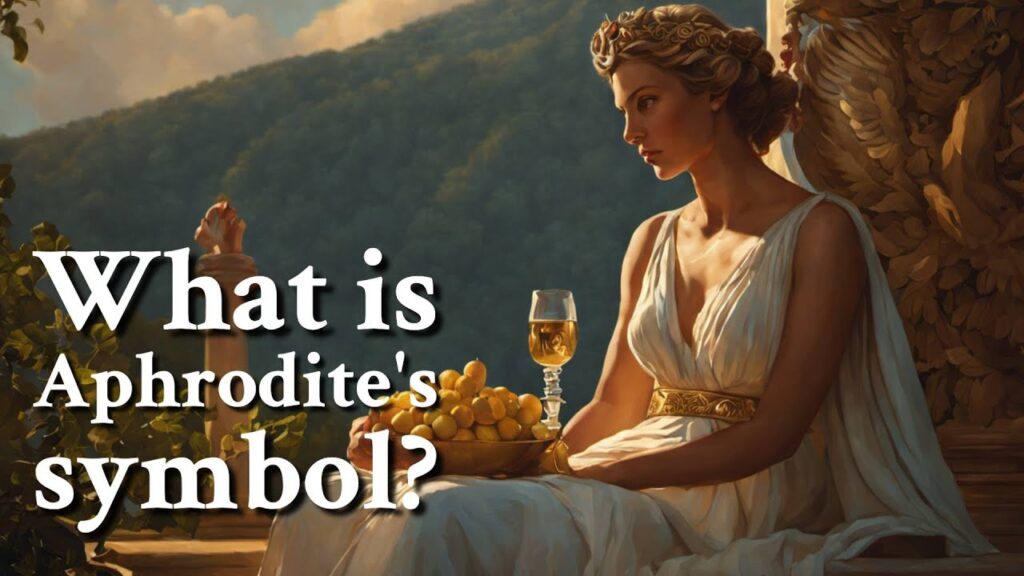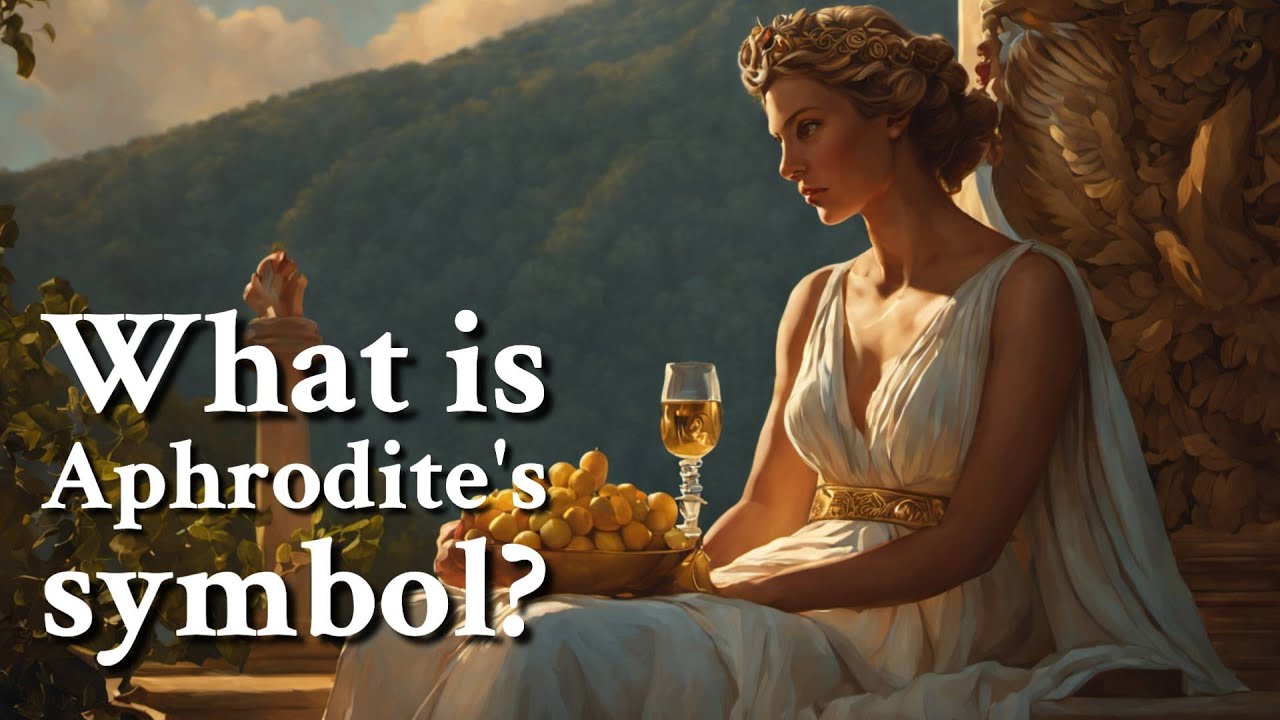
Aphrodite: Unveiling the Strengths and Weaknesses of the Goddess of Love
Aphrodite, the Greek goddess of love, beauty, pleasure, and procreation, is one of the most iconic figures in mythology. Her allure has captivated imaginations for centuries, but like any powerful deity, she possessed both remarkable strengths and significant weaknesses. Understanding these facets provides a more complete picture of Aphrodite and her influence on ancient Greek culture and beyond. This article delves into the multifaceted nature of Aphrodite, exploring her divine gifts and the vulnerabilities that shaped her actions and relationships.
Aphrodite’s Strengths: A Goddess of Unrivaled Power
Aphrodite’s power stemmed from her dominion over love and beauty, emotions that profoundly influence human behavior and societal structures. Her strengths were not merely superficial; they were deeply intertwined with the very fabric of existence.
Unmatched Beauty and Allure
Aphrodite’s beauty was legendary, capable of inspiring both adoration and intense jealousy. Her physical perfection was considered divine, and her presence could ignite passion in the hearts of gods and mortals alike. This allure was not just about physical appearance; it was a manifestation of her inherent power to inspire desire and attraction.
Influence Over Love and Desire
As the goddess of love, Aphrodite wielded immense influence over the emotions and relationships of all beings. She could inspire love, passion, and affection, but also manipulate these feelings to achieve her own ends. This control over love made her a formidable force in the lives of both gods and humans. [See also: The Role of Gods in Greek Mythology]
Patron of Beauty, Art, and Creativity
Aphrodite was not solely associated with romantic love; she also represented beauty in all its forms. She was a patron of artists, sculptors, and anyone who sought to create beauty in the world. Her influence extended to fashion, adornment, and the pursuit of aesthetic excellence. She inspired creativity and encouraged the appreciation of beauty in everyday life.
Fertility and Procreation
Aphrodite was also associated with fertility and procreation, ensuring the continuation of life. She was revered as a goddess who blessed marriages and childbirth, and her influence was sought to ensure healthy offspring. This aspect of Aphrodite highlighted her role in the natural cycle of life and the importance of reproduction.
Aphrodite’s Weaknesses: Vulnerabilities of a Divine Being
Despite her immense power, Aphrodite was not without her weaknesses. These vulnerabilities often stemmed from her own passions and insecurities, leading to conflicts and questionable decisions.
Jealousy and Vanity
Aphrodite’s vanity and jealousy were significant flaws. She was easily offended if her beauty or status was challenged, leading to vindictive actions. Her jealousy often manifested in punishing those who dared to compare themselves to her or who attracted the attention of those she desired. This insecurity made her a sometimes unpredictable and dangerous figure.
Susceptibility to Desire and Infidelity
Despite being the goddess of love, Aphrodite was not immune to the allure of desire herself. She engaged in numerous affairs, both with gods and mortals, which often led to conflict and drama. Her infidelity challenged the traditional notions of marriage and fidelity, highlighting the complexities of love and desire, even for a goddess. Her most famous affair was with Ares, the god of war, which was discovered by her husband Hephaestus, leading to public humiliation. [See also: The Affairs of the Olympian Gods]
Dependence on Beauty and Adoration
Aphrodite’s power was largely dependent on her beauty and the adoration she received. This dependence made her vulnerable to the effects of aging and the potential loss of her allure. She constantly sought validation and reassurance of her beauty, highlighting a deep-seated insecurity about her own worth. This reliance on external validation was a significant weakness in her character.
Indirect Influence and Manipulation
Aphrodite often achieved her goals through indirect influence and manipulation rather than direct action. She used her power to inspire love and desire in others, manipulating their emotions to achieve her own ends. This indirect approach, while effective, could also be seen as a weakness, as it relied on the actions and decisions of others. Her influence was often subtle, but its consequences could be far-reaching.
Examples of Aphrodite’s Strengths and Weaknesses in Mythology
The stories surrounding Aphrodite provide numerous examples of her strengths and weaknesses in action. One prominent example is the Judgement of Paris, where Aphrodite bribed Paris with the promise of the most beautiful woman in the world, Helen of Sparta, leading to the Trojan War. This demonstrates her power to influence desire and her willingness to use manipulation to achieve her goals. Her strength lies in her ability to sway Paris, but her weakness is her willingness to cause conflict and suffering to satisfy her own vanity.
Another example is her relationship with Adonis. Aphrodite’s love for Adonis was intense, but her jealousy led to his tragic death. When Adonis was killed by a wild boar (sent by either Artemis or Ares, depending on the version of the myth), Aphrodite’s grief was profound. This story illustrates her capacity for deep love, but also her vulnerability to loss and the consequences of her own actions. [See also: The Myths and Legends of Ancient Greece]
The Enduring Legacy of Aphrodite
Despite her flaws, Aphrodite remains a compelling and influential figure in mythology. Her strengths and weaknesses reflect the complexities of human nature and the enduring power of love and beauty. She serves as a reminder that even the most powerful beings are not immune to vulnerability and that true strength lies in understanding and accepting our own imperfections. The multifaceted nature of Aphrodite continues to resonate with audiences today, ensuring her place as one of the most enduring figures in classical mythology. Her image is still used widely in art, literature, and popular culture, solidifying her iconic status. Understanding both the strengths and weaknesses of Aphrodite allows for a richer appreciation of her role in shaping our understanding of love, beauty, and the human condition.
Ultimately, Aphrodite represents the intoxicating and often contradictory nature of love itself. She embodies both the joy and the pain, the beauty and the ugliness, that are inherent in the human experience of connection and desire. Her story serves as a cautionary tale and a celebration of the enduring power of the heart.

